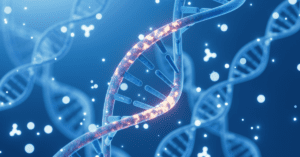
Snapshot: What is FGF14?
FGF14 or fibroblast growth factor 14 is an essential protein found predominantly in the brain, specifically in Purkinje cells. These brain cells are responsible for maintaining everyday functions such as Read More…
The Ataxia Community Comes Together in Orlando April 9–11, 2026 for the Annual Ataxia Conference! LEARN MORE
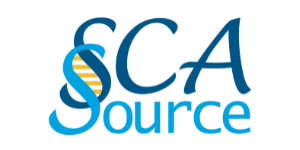

FGF14 or fibroblast growth factor 14 is an essential protein found predominantly in the brain, specifically in Purkinje cells. These brain cells are responsible for maintaining everyday functions such as Read More…
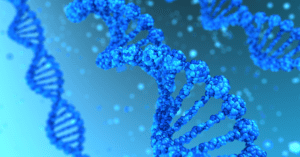
Para que nuestro cuerpo funcione de manera saludable, es necesario llevar a cabo muchos procesos celulares esenciales regulados por moléculas creadas en nuestro interior. Esta molécula base es llamada ADN, Read More…
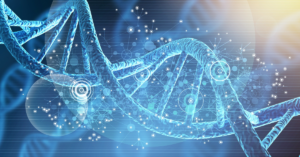
Written by Tala Ortiz Edited by Hannah Shorrock, PhD Repeat length in RFC1 Ataxia, also known as CANVAS, impacts the age of onset of symptoms, type of symptoms, and progression Are there ways to Read More…
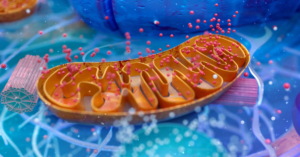
Written by Yujia Li Edited by Priscila Pereira Sena The discovery of first links between mitochondrial dysfunction and SCA6 progression offers new insights for potential treatments. What drives the progression Read More…
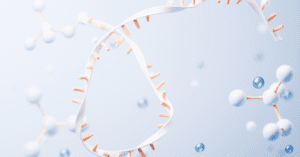
Written by Ross Pelzel Edited by Eder Xhako, PhD and Celeste Suart, PhD Alternative splicing produces different versions of proteins that arise from the same gene. In many neurodegenerative diseases, Read More…

Cerebellar cognitive affective syndrome (CCAS) is a condition where cognitive and emotional abilities are affected due to cerebellar damage. Historically, the cerebellum was identified as the part of the brain Read More…
SCAsource began as a website where research on SCAs and related Ataxias is written in plain language by SCA scientists. Their goal was to make research more readily accessible and understandable to Ataxia patients and families. The idea for SCAsource came from discussion at the 2018 Ataxia Investigators Meeting run by NAF. The original website, scasource.net, was officially launched on September 27, 2018. It was run entirely by volunteers, primarily graduate students and post-doctoral fellows in laboratories which study Spinocerebellar Ataxias. In 2022, NAF partnered with SCAsource and its writers to host their content and publish their articles.

Patient Engagement Manager
National Ataxia Foundation
Bio: Celeste Suart obtained her PhD from McMaster University in Canada. She worked in Dr. Ray Truant’s laboratory studying the response of ataxin-1 (the protein affected in SCA1) to DNA damage and reactive oxygen species stress. She earned obtained her Certificate in Knowledge Mobilization from the University of Guelph. Currently, Celeste is the Patient Engagement Manager for the National Ataxia Foundation, where she works to make ataxia research information more accessible for patients and family members.

Assistant Professor
University of Michigan
Bio: Dr. Hayley McLoughlin is an Assistant Professor in the University of Michigan Neurology Department, with a joint appointment in the Department of Human Genetics. She earned her Neuroscience doctoral degree in 2013 from the University of Iowa in Dr. Beverly Davidson’s laboratory and completed a postdoctoral research fellowship under the guidance of Dr. Henry (Hank) Paulson at the University of Michigan. Her lab currently focuses on establishing pathogenic mechanisms and therapeutic interventions for neurodegenerative diseases with particular emphasis toward the polyglutamine disease, SCA3.
Are you an Ataxia researcher that would like to write for SCAsource? Complete the Volunteer Application Form.

Written by Tala Ortiz Edited by Hannah Shorrock, PhD Repeat length in RFC1 Ataxia, also known as CANVAS, impacts the age of onset of symptoms, type of symptoms, and progression Are there ways to Read More…

Written by Yujia Li Edited by Priscila Pereira Sena The discovery of first links between mitochondrial dysfunction and SCA6 progression offers new insights for potential treatments. What drives the progression Read More…

Written by Ross Pelzel Edited by Eder Xhako, PhD and Celeste Suart, PhD Alternative splicing produces different versions of proteins that arise from the same gene. In many neurodegenerative diseases, Read More…

FGF14 or fibroblast growth factor 14 is an essential protein found predominantly in the brain, specifically in Purkinje cells. These brain cells are responsible for maintaining everyday functions such as Read More…

Para que nuestro cuerpo funcione de manera saludable, es necesario llevar a cabo muchos procesos celulares esenciales regulados por moléculas creadas en nuestro interior. Esta molécula base es llamada ADN, Read More…

Cerebellar cognitive affective syndrome (CCAS) is a condition where cognitive and emotional abilities are affected due to cerebellar damage. Historically, the cerebellum was identified as the part of the brain Read More…
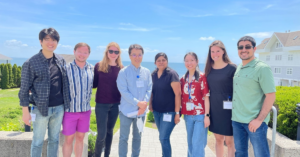
Picture of the Lim lab taken in May 2022. Left to right: Chris Lee, Benjamin Sanders, Kimberly Luttik, Dr. Janghoo Lim, Dr. Neha Gogia, Luhan Ni, Ashley Owens, Victor Olmos Read More…
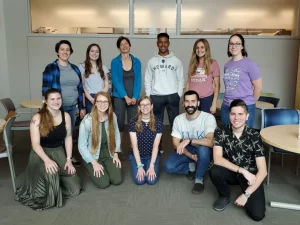
Principal Investigator: Dr. Marija Cvetanovic Location: University of Minnesota, Minneapolis, USA Year Founded: 2012 What disease areas do you research? SCA1 What models and techniques do you use? Mouse models Human stem Read More…
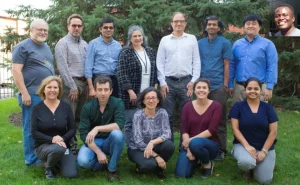
Location: University of Minnesota, MN, USA Year Research Group Founded: 2008 What disease areas do you research? Ataxia (SCA1, SCA2, SCA3, SCA6, Friedreich Ataxia) Multiple System Atrophy – Cerebellar Ataxia Huntington’s Read More…

Written by Terry Suk Edited by Dr. Hayley McLoughlin In this classic article, researchers describe how CAG repeat number variation can inform differences in the way SCA3/MJD symptoms present. Machado-Joseph Read More…
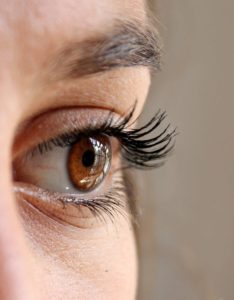
Written by Siddharth Nath Edited by Dr. Ray Truant Spinocerebellar ataxia type 7 (SCA7) is unique amongst the SCAs in that it involves an organ besides the brain – the eye. Rather Read More…
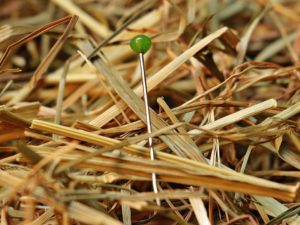
Written by Dr. Sriram Jayabal Edited by Dr. Brenda Toscano-Marquez Scientists uncover SACS, a gene containing the largest exon identified in vertebrates, which leads to ARSACS when mutated. What is Read More…
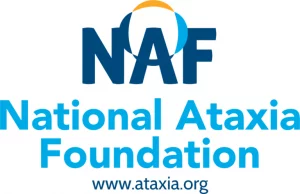
The SCAsource team is excited to announce that we are partnering with the National Ataxia Foundation (NAF) to improve our website infrastructure! As you know, SCAsource is run by a Read More…

The SCAsource team is pleased to announce that we have become a partner of the Ataxia Global Initiative (AGI)! The AGI is an international collaboration to assist the development of Read More…

Wishing you and your families a happy and safe holiday season! We will be back in January 2021 with new content. Hope you have a fantastic new year! Read More…
Please note: Due to the volume of emails, we may not be able to respond to all messages individually. Thank you for your understanding.
